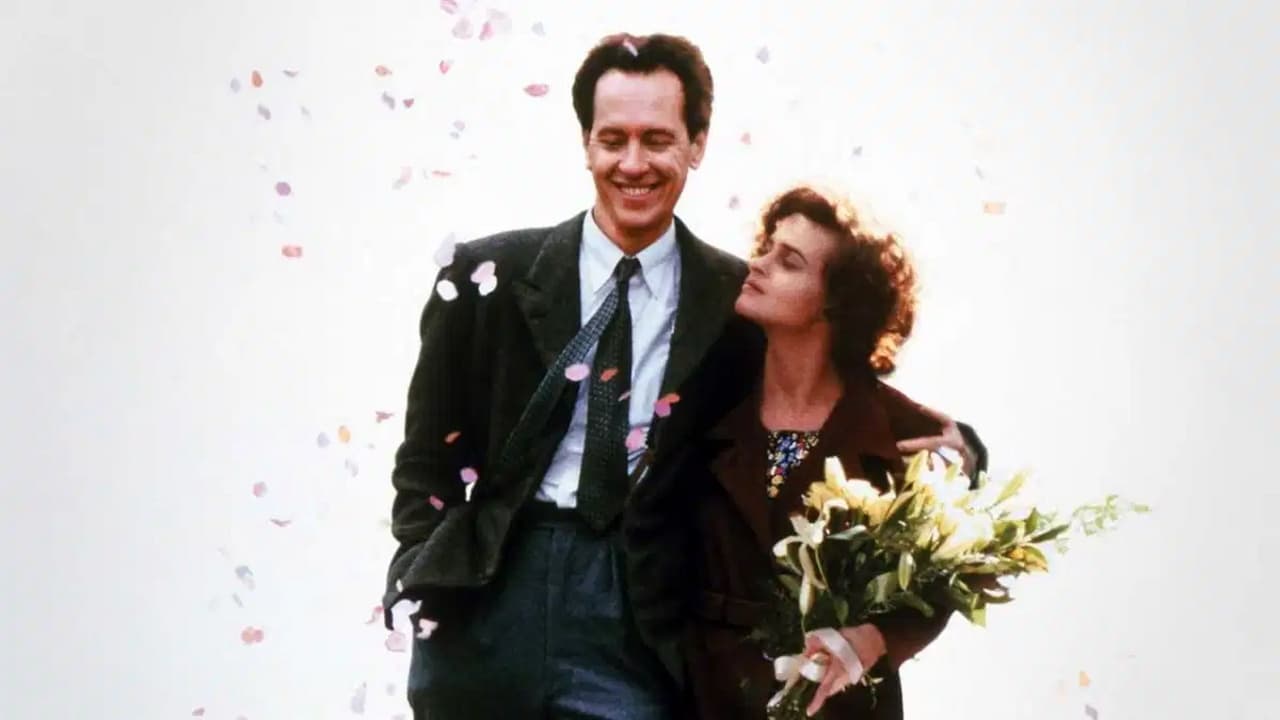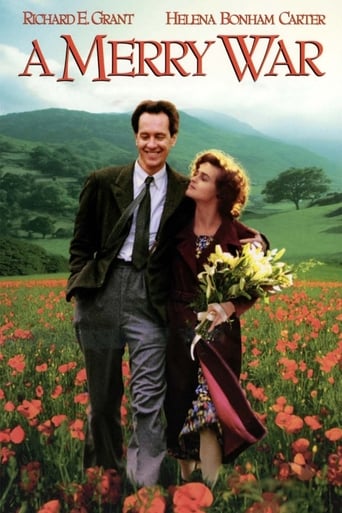

How could anyone who had read the book and who had any respect for literature, especially a respected screenwriter such as Alan Plater, turn this story of glum penny-pinched '30's London into 1990's-style standard advertiser's jolly-jumpered "Heritage" golden nostalgia?. Not only did it do violence to the tone of the book, it did violence to its very essence. It does violence too to history - to what it was like to live in London in the 1930's on less than £2 per week. All the more reprehensible as the book was largely autobiographical. Comstock, a writer, believes that he has talent as a poet but instead is prostituting that talent writing crass advertising slogans in return for money and a comfortable life. This belief that he is wasting his real talent - and his life in this way causes him to attempt to reject the entire world of money, to live in (moderate) poverty and to devote himself to writing poetry. Having rejected "the Money God" he endures the consequences. In the book but not in the film the petty mean realities of poverty in cold 1930's London are spelt out in detail. They weigh him down, make him embittered - and obsessed with the very thing that he wished to escape: Money. His obsession takes the form not of a desire but of an increasing loathing where every kind of failure or slight he suffers is blamed on his lack of money and other people's veneration of it. Comstock's rejection of money makes his life complicated and extremely limited - deciding what each coin in his pocket might buy - can he smoke his single cigarette today or should he to save it for later in the week?His miserable lodgings are policed over by an ever-watchful landlady who neither allows female visitors inside the front door nor the making or consumption of hot drinks in the room, thus forcing Comstock to find furtive and frustrating ways round the latter and to conduct his romancing of his long-suffering girl friend Rosemary in the streets and public places. Comstock believes the reason Rosemary will not sleep with him is his Lack of Money. Worst of all - for him - he finds that having rejected money and enduring the consequences, he cannot even make any progress on his supposed life's work - his poetry.The book is in many ways glum. Comstock, as the author notes, becomes complaining and miserable. Comstock describes himself as "moth-eaten". His family had sacrificed all so that he alone would get a "good education" and thus consigned themselves to a life of meanness on his behalf. Comstock's consequent perverse decision to give up "a good job" thus distressed them and gives him occasional twinges of guilt.A large facet of the book is the way that the reader to some extent comes to share this mean and rather humiliating life. The glumness though is relieved by the self knowledge and perspective of the author making it at times wryly comical.Comstock is not a Socialist. He has no positive vision, only the negative one of the corrupting effects of money and even those Orwell portrays as being obsessive. His wealthy friend Ravelson, a Marxist, tries to enlist him without success. Orwell, in real life from a middle-class comfortable background himself, chose to lead a life which at best was hair-shirt. At worst had him "Down and Out in Paris and London" and a volunteer in the Spanish Civil War. No other writer in English had quite such a gloomy and masochistic lifestyle. Comstock chose to work in a badly paid job but will not sponge, he does not accept charity. He has a great deal of integrity especially concerning Art and cannot but be revolted and oppressed by the foolish images and slogans on billboards all around him, some of which he had written: "Corner Table Enjoys his Bovex!" His rather inconsistent scruples and artistic sensibility are a curse not a blessing. The book is presumably Orwell talking about what he felt, experienced and believed then.This production is pleasant but all that is notable in the book is missing. The instinct for those who respect Orwell's talent (and can endure his glumness) and have any sense of period might well be to throw their copy into the bin baffled at how such a travesty came to be made.But an excellent BBC TV version was made in the early 1960's starring the late Alfred Lynch and Anne Stallybrass which stayed true to the book. In black and white and studio bound it nevertheless stands head and shoulders above this later production.
... View MoreIn 1930's London, Gordon Comstock (Richard E. Grant) works in the advertising business as a copywriter. His work is so outstanding that he is one of the most valued employees of the firm. Yet Gordon longs to leave the mundane existence of the average worker and become "a poet and a free man". When one of his poems sells for a reasonable sum, he quits his job to devote himself to writing. However Gordon's girlfriend, Rosemary, is aghast. She had hopes for an impending marriage and a comfortable, middle-class life. When writing full-time proves difficult, Gordon sinks lower and lower in terms of places of residence and fiscal circumstances. Yet, he stubbornly pursues his dream, leaving Rosemary in a most unhappy state. Will Gordon come to his senses and return to the stable existence of the work force and the good graces of his lady love?This is an absolutely delightful movie that is a joy to watch. The main actors are excellent, the cinematography is outstanding, and the costumes and settings lovely to look upon. The script, based on a George Orwell book, is first-rate and engagingly humorous. There is also a level of sophistication that is as pleasing as it is approachable. Finally, there is a satisfying love story that will please any fans of romantic comedies. In short, this is a movie that should appear on lists of recommended films of the highest level. It is truly worthy of much praise.
... View Morethis seemed an odd combination of Withnail and I with A Room with a View.. sometimes it worked, other times it did not. tragedy that they changed the name for the US release though.. Keep the Apidistra Flying is much better than the nothing title A Merry War. acting was okay, script was okay.. overall it was a mediocre film..
... View MoreNo one is better at pontificating while poking fun at themselves than the English, and if you enjoy that sort of thing, this movie is definitely worth watching. Along the way you get to sneer at wealth, poverty, capitalists, communists, the bourgeoisie and proletariat, business, respectability, advertising, poetry, bookstores and readers, hardy plants, loathsome but endearing friends, parasitic siblings, impatient lovers, and self-delusion. All of this comes with an intelligent script, quality acting, and personalities you've met before and would like to meet again. A gleeful romp for those who don't take themselves or their ambitions too seriously, who find sadistic humor distasteful, and who tire quickly of nude/bathroom/body fluid jokes.
... View More